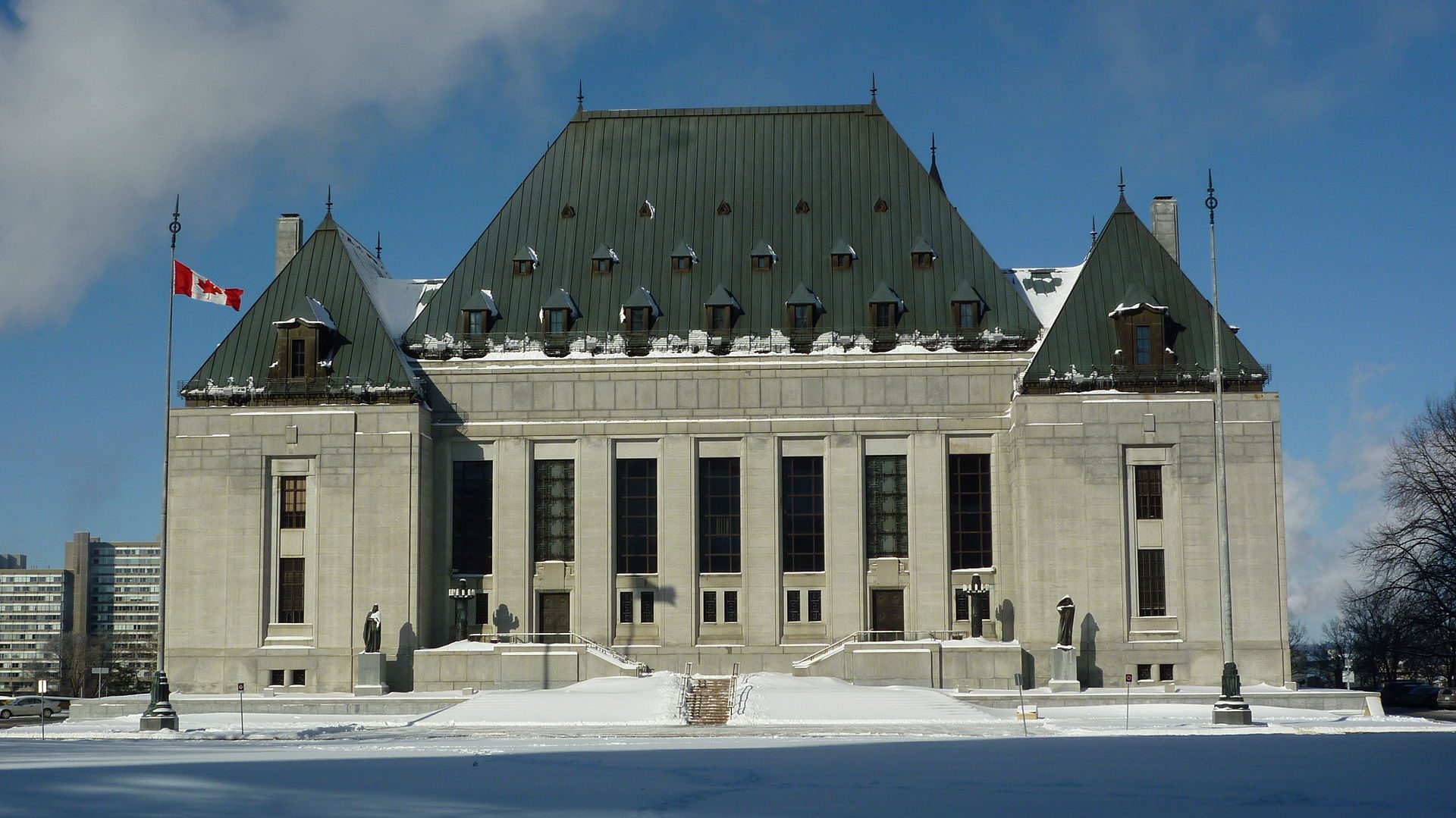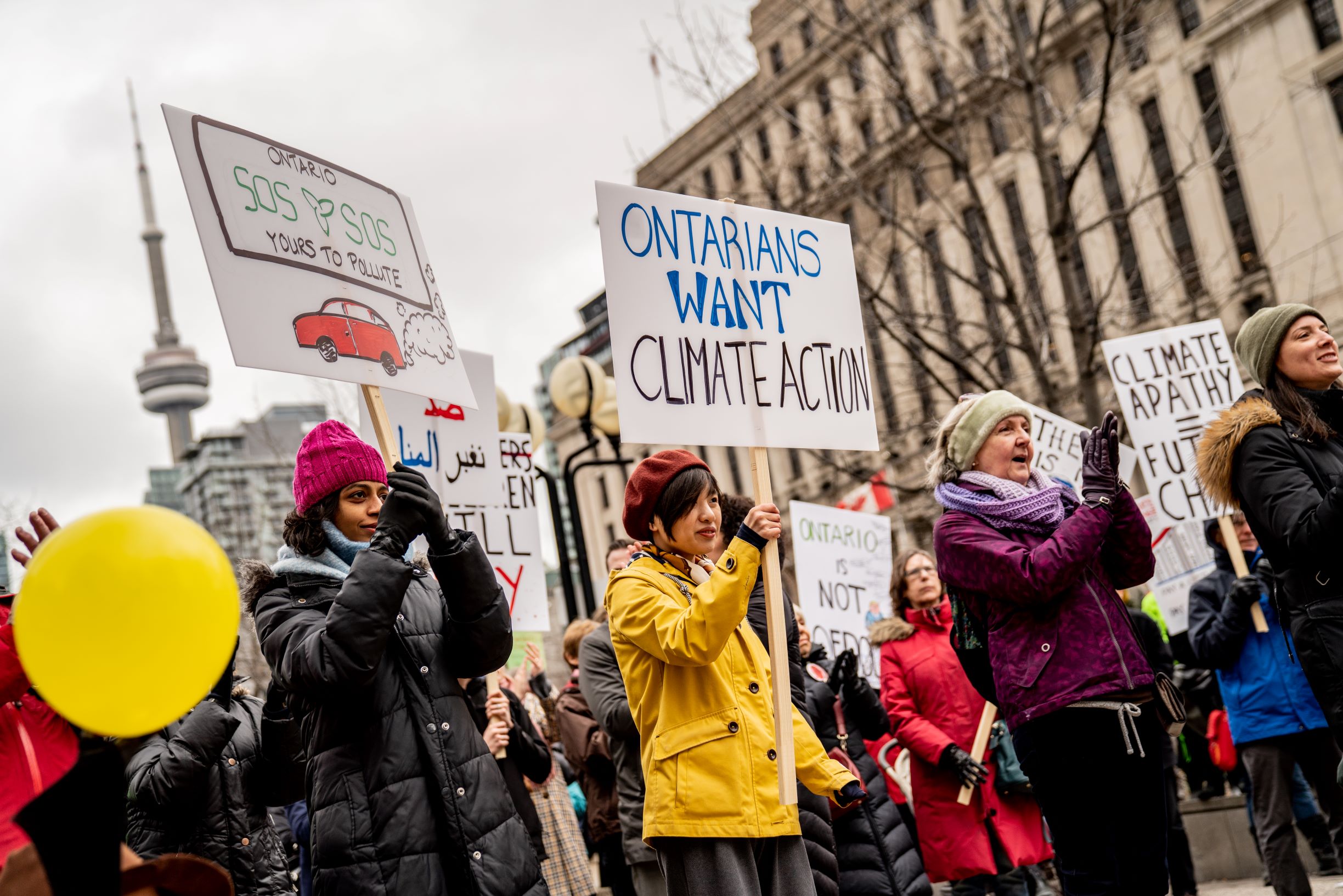This week, Canadians won an important victory on the climate front when the Supreme Court ruled in favour of the federal government and affirmed that Canada’s carbon pricing law is legal under the constitution. Carbon pricing is widely accepted to be an effective mechanism to reduce emissions. It’s working in Canada. And thanks to the ruling, it’s here to stay – at least for now.
Carbon pricing is one of the tools the federal government is using to reduce emissions and fight climate change. Provinces were given the choice of either implementing their own carbon pricing system or accepting the federal system. Some accepted the federal system (Yukon Territory, for example). Some developed their own systems (Quebec, and B.C.), while others decided to take the government to court – enter Ontario, Saskatchewan and Alberta.
Importantly, the governments of these provinces didn’t argue that climate change isn’t real or that governments shouldn’t act. In fact, they all stated in court that the realities of climate change and the urgency of government action isn’t in dispute. They were just arguing over jurisdiction – that the federal government doesn’t have the constitutional right to implement carbon pricing in a province that doesn’t want it – or so they claimed.


The Supreme Court’s decision also said that provinces alone cannot address climate change, because emissions cross borders and pollution emitted in one place will impact the climate in another. In fact, the ruling essentially said that the resistance from some provinces to act on climate change clearly demonstrates that federal action is needed.
Provinces who have wasted years and millions of dollars fighting carbon pricing, including Ontario, have lost this battle. Hopefully they stand down, and stop fighting against the federal government and against climate solutions. Don’t count on it though.
But even if they do, carbon pricing will likely be tested again in the next federal election. The leader of the opposition, Erin O’Toole, has said he’d cancel the carbon price if allowed to form the next government. Hopefully, though, this next election will be the last and final test of carbon pricing, and everyone will accept that the measure is here to stay, that it works, and that it’s not causing the sky to fall as the naysayers like to claim.
The ruling is a big victory for sure, and Environmental Defence is supportive of carbon pricing and acted as an intervenor in the case, in support of the government. The carbon pricing rules still need to be tightened in some key areas, so that provinces like New Brunswick can’t get away with reducing the provincial gas tax to offset the impacts of the carbon tax, and that province’s like Ontario aren’t allowed to have weak industrial pricing systems in place of the federal program.
Other work is needed too – Canada does have a plan to meet or exceed the country’s Paris pledge, but that pledge is still far too weak. We’re nowhere near being on track to limit warming to 1.5 degrees. And we still have little in place to address greenhouse gas emissions from the two largest emitting sectors – the oil and gas industry, and transportation, which together count for half of Canada’s carbon pollution. Moreover, emissions from both sectors have been growing rather than shrinking.
Canada is behind its peers when it comes to progress on climate – we’re behind all the major countries in Europe, and behind the U.S. too.
We’re being pressured to up our game by President Biden – and will be called upon to offer a new pledge at a climate Summit the President is hosting this April.
This is a critical decade for the climate fight. Canada has shown up. The fight hasn’t been easy. But with this victory behind us, now is the time for Canada to double down on its climate commitments.
As the Supreme Court said, “Climate change is real. It is caused by greenhouse gas emissions resulting from human activities, and it poses a grave threat to humanity’s future.”
Now the federal and provincial governments need to act on this threat, at the scale and pace it calls for.
Stay updated on environmental issues. Join our email community







